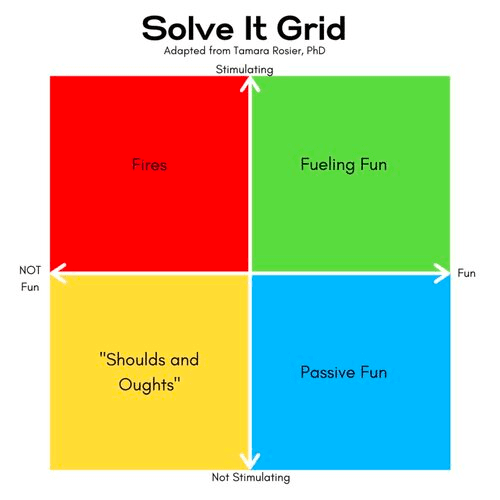🧵 View Thread
🧵 Thread (93 tweets)

Last year I was diagnosed with ADHD. I haven't written about it much because the diagnosis was a shock. Now I have a more solid understanding of ADHD, how it presents for me, and ways to mitigate some of the downsides. So, for threadapalooza 2023, here's 100 tweets on ADHD

1. tl;dr If you just want the solutions, here's what I've found helpful: Meditation Exercise Task management Environment shaping Medication These are all ~equally effective, but medication only works while you're on it, with a proper dose. More on treatment options later.

2. First, ADHD is a terrible name. It's not an attention deficit, it's an attention regulation disorder. There is plenty of attention, it's just not directed towards the things you're "supposed" to attend to, and attention may move around more than it's "supposed" to.

7. Given the right circumstances, people with ADHD can hyperfocus on a task, even to the extent that they ignore important input like needing to eat, needing to leave for an appointment, or noticing building frustration.

9. When you have a smaller working memory, you learn that the only way to get tasks done is to hyperfocus and rush through it before your memory stack collapses. Hyperfocusing people are ignoring or pushing away important information, including emotions.

13. In my youth I was banned from an internet chat room for making the same joke over and over again, despite being given warnings, knowing intellectually that it wasn't funny any more, and being unable to stop because I was so excited

14. A cute+helpful framework for ADHDers is the solve-it grid. https://t.co/lhdk5GjA73
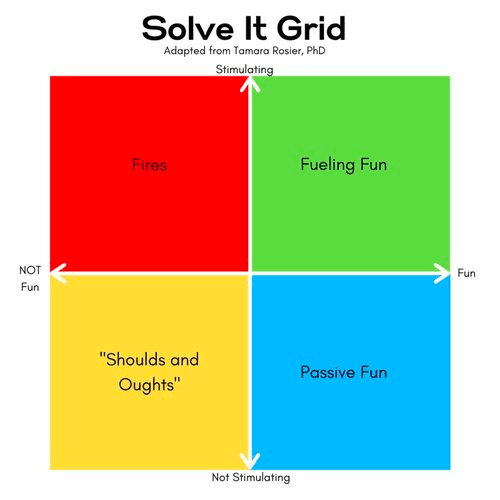

16. If you're ADHD you may have figured out that to get things done requires putting it off to the last minute and completing it under duress. If this works really well, you may rearrange your life to always be putting out fires - the red quadrant

17. Staying in the red quadrant isn't sustainable, you will burn out. Burnt out people will tend to slide into blue activities, passive fun like doomscrolling twitter or binge watching anime. We are surrounded with an infinite amount of blue activities.

18. If your brain is shaped to look for novel, interesting ideas the internet will provide. Basic tasks required for living can get pushed down until they get insurmountably bad. Eventually things will get bad enough that you'll pop back over to red.

19. The loop starts over again, red to blue to red to blue https://t.co/M6vWNlznbW
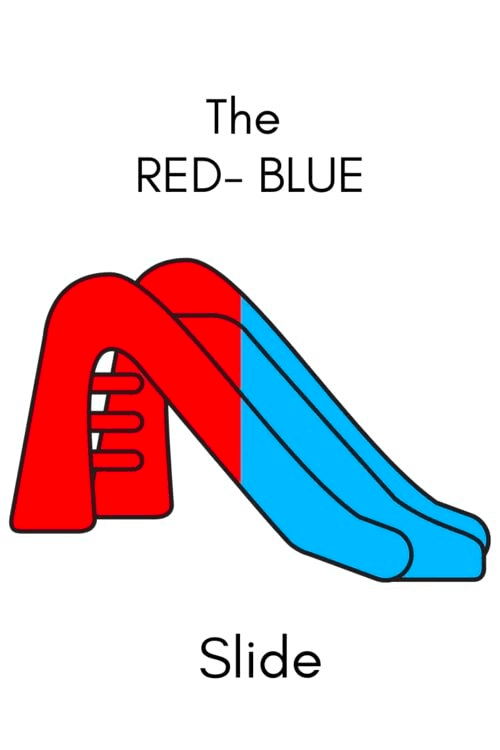

20. Red to blue is functional enough to get by, but it's not really sustainable. It is possible to escape. The key is to build enough space (energetically and emotionally) to get started on green behaviors (fueling fun), which can fuel yellow behaviors

21. What traps us in red-blue is shame/frustration/anxiety It's frustrating to not be able to finish mundane tasks It's shameful to see peers 'level up' their lives so easily It's lonely to see friends drift away because you're too spacey/talkative

22. Our whole lives we've avoided or suppressed difficult emotions because we couldn't deal with the overflows. So we avoid with more procrastinating, or more red-quadrant work. For me, developing emotional awareness and fluidity has helped so so much

24. When I was undiagnosed I just thought there was something wrong with my character. I "knew" what to do to succeed but never stuck with it long enough. I just needed more grit or more planning or a better app or or or

25. In 2022 I decided to get a full psychological assessment. I figured I was neurodivergent in some way, but had no clue how. After 6 months of waiting for a timeslot I took a full battery of tests, about 4 hours in a softly lit room full of fidget toys

26. ADHD, inattentive presenation. No one ever thought to check when I was young. I wasn't your typical hyperactive boy who couldn't sit still. I got good grades because I could outwork my procrastination. Teachers excused my daydreaming because I could answer their questions

27. Giving it a name was so important, because it gave me a framework to understand myself better. So many aspects of my life started to click into place. I could explore treatment from a place of understanding, rather than a place of shame

28. And there was a grieving process too. What if I had known earlier? What would my life have been like? I'm much more skillful at navigating this now but I still fall into self-shame spirals, unfair comparisons with my peers, with what I "could have been"

33. IME if medication negatively impacts your sleep, it basically doesn't help. The first medication I was on ruined my sleep even at tiny doses, and didn't help at all. We switched to a different one and now we're good

35. There's still a stigma around meds in the US, frustrating bureaucracy to get around, and weird shortages I've gone months without meds because I couldn't be bothered to deal with calling pharmacies, calling my psychiatrist to try a different place, etc etc

37. I've had emotional "rebounds" after meds wear off or on days I take breaks. When you're on meds all day and regulating emotions well sometimes everything floods up again when the meds wear off. I see nothing about this in the literature but hear from others w/ similar exp

39. okay here's a funny case study, I meant to go for a walk but a friend sent a link I wanted to watch, so I pivoted and rode my indoor bike instead while watching, and now we're back. Sometimes leaving some optionality is more helpful than going, "no you gotta do the thing 😡"

40. Let's talk about some other behaviors that help. Activities in the green quadrant are energy giving, but they might be difficult to start. Creative hobbies, socializing, getting outside, exercising, meditating are good options here

41. Figuring out how to get green activities into your life regularly can let you build enough energy to tackle yellow "should" activities https://t.co/MksPUx1Cm1

42. "But James, exercising and meditating are not in my green quadrant!" They weren't in mine either, but you can move stuff from yellow to green! Make it fun! Try a ton of different things until you build enough interest. Give yourself lots of options to bounce around

43. I exercise everyday but it's always a choice between like 5-6 options Why exercise? It's just as effective for ADHD as medication! It's an opportunity to get out of your head and maybe reframe some emotional overwhelm (plus all the other reasons you've heard a billion times)

46. "but James sitting still for more than 30 seconds is impossible!" yes, I hear you. All I can suggest is to try different styles of meditation. It does get very interesting. Try: Guided walking meditations Metta Open Awareness Brightmind (Shinzen Young)

47. From meditation off and on over the years I've noticed: greater ability to notice emotions before they start overwhelming me greater patience with and ability to let go of distractions I'm happier/okay more often

49. talking about exercise or meditation can bring up a lot of shame, it's very difficult to establish behaviors like this with adhd and doubly so if you're beating yourself up for it. Developing a sense of self love or deep okayness has been a gigantic part of my own journey.

50. Two great resources on developing self love: Sasha Chapin: https://t.co/aDSbPmd63Q Anita Amini: https://t.co/bqArnv16Ex Highly highly recommend both

56. Learn a few techniques to get you out of an emotional flood: 4-7-8 breathing box breathing physiological sigh feel into your feet the goal isn’t to suppress the emotion, it’s to help you get to a feeling of safety so you can work with the emotions https://t.co/8qXkMAgUaK

57. use the pomodoro technique (mixed results ime) The best adhd friendly resource on this is from David Cain https://t.co/mJCnCadByW

58. Time to talk about task management. With ADHD, working memory is often smaller than average. The amount of information you can hold in your head at once is limited. This doesn't mean your memory is bad. If you can move info into long term memory, there's no issue.

59. "Your mind is for having ideas, not holding them" - David Allen Write. Everything. Down. Use your phone notes, voice recordings, a notebook, a stickynote, a whiteboard, whatever. If you have an idea, capture it.

60. Setting up and using a task management system is just as effective as medication. I am lucky enough (unlucky enough?) to have had productivity as an area of hyperfocus. You don't need anything super complicated.

61. David Allen's Getting Things Done is the OG task management system. It works, but the book is maybe too much to start with. There are lots of intro tutorials on youtube, I sell a product that covers task management, and this 15 minute guide is nice https://t.co/N9GMKPJ70I

63. I'm gonna share more ideas about task management, but before that I want to make an important note: A lot of productivity advice is not going to work for you. Most of it was written for people with a different thinking style than you. Even advice targeted to ADHDers can be bad

65. Instead, try giving yourself a small amount of distraction: a fidget toy, doodling, simple ambient videos (trains, city walks, lofi hiphop), working from a cafe, etc. The small deliberate distraction will help you focus on the actual task

67. So so so much productivity advice is like, "force yourself to do the thing. do the thing. just do it." I'm not even sure this is good for neurotypical people. When you inevitably fail at doing the thing not only did you not do thing now you're gonna beat yourself up for it

68. But then we think, "ahh i just gotta do thing but even more focused this time". Surprise: you're an adult with self-shame issues. What's funny is the self-inflicted harm is often worse than the actual thing we're "failing" at

71. Back to some concrete stuff, environment shaping! With ADHD, objects are often "out of sight, out of mind". bc of limited working memory, if you don't see something, it's likely to stop existing in your mind. You can shape your environment to help you remember things

72. The reverse is also true: "out of mind, out of sight" I am notorious for leaving cabinets open. "I need a bowl" *open cabinet* *grab bowl* *task complete, mind already onto the next thing* *cabinet remains open forever

74. You can shape your environment to make daily tasks easier. One way is to keep everything needed for one task in one space. If you make coffee every morning setup everything you need within arms reach. https://t.co/IY3lKLurTv

there’s like not that many activities you do at home, cook, read, hobby, sleep, clean, computer, coffee, stretch make a little space for each of those activities (they can overlap). make sure the tools you need most often are at the “point of performance”. make the space nice

75. Another way is to make items visible. A minimal room with everything hidden is not going to work well (unless you really don't own much). I love the minimal aesthetic. It doesn't work for me. https://t.co/ojowVyauTB
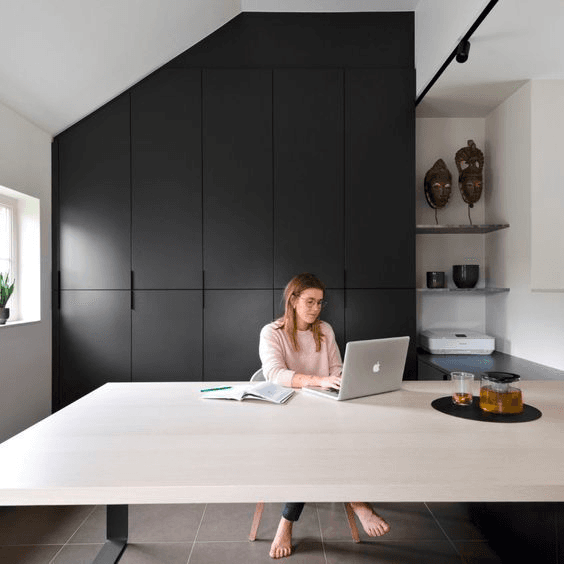

76. Instead aim to make every item visible. Use clear bins so you can see what's in them. If you can't, use labels to make it obvious where things go. Lean 5S techniques are awesome here https://t.co/2I0QJfRE02
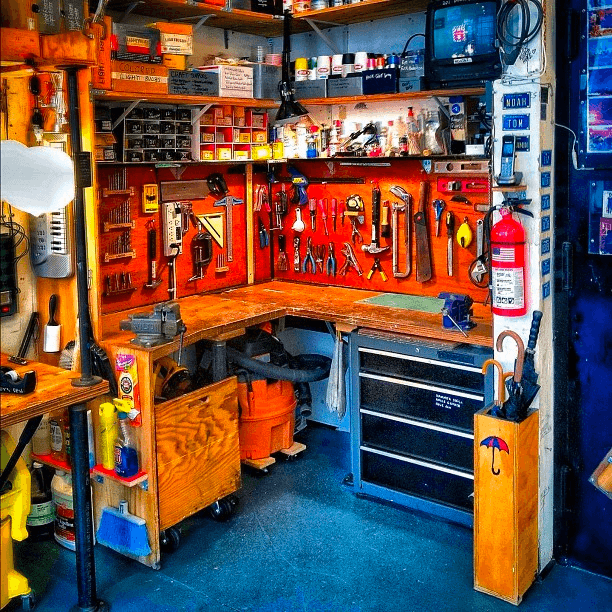

77. The optimal adhd house will look strange. If you're always forgetting to use your vegetables stop putting them in the crisper. Put them on the shelf where they will be visible. Put your condiments in the crisper instead. it's okay, I won't judge you https://t.co/uYA7tsi3hC
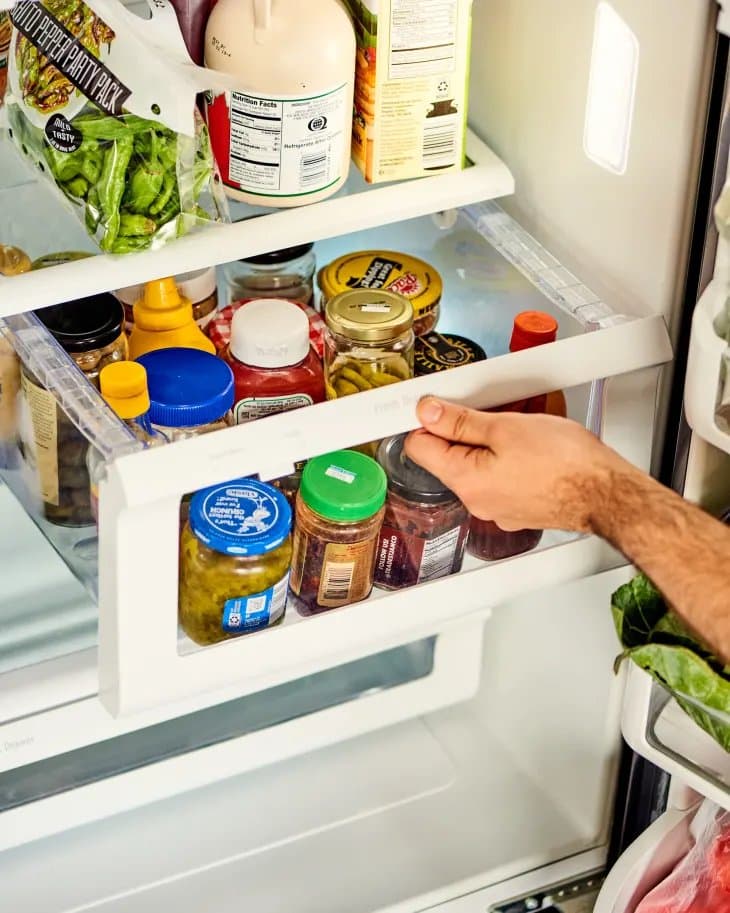

79. Designate a spot near your entrance for keys, wallet, purse/manbag. Dump it out when you get home https://t.co/WhnHeLvUXp
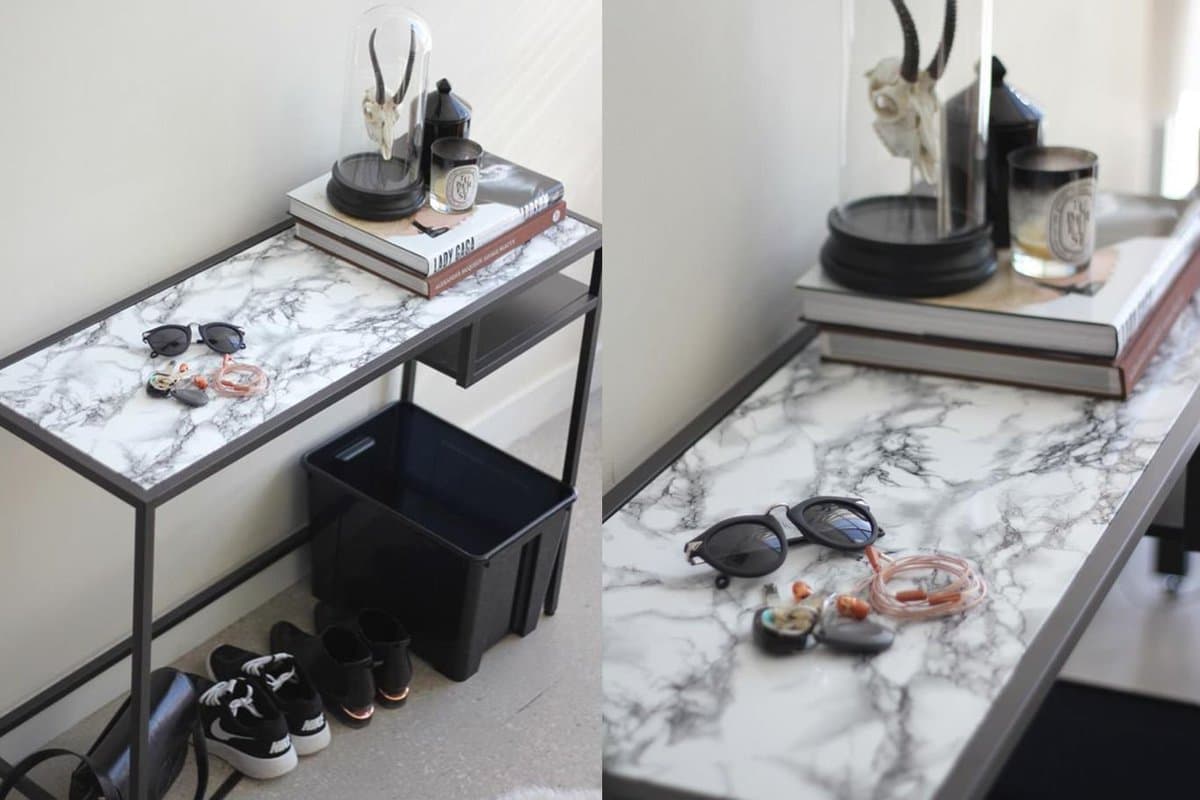

80. Designate a spot for your phone in every room. Literally practice putting your phone in that spot. Set a timer for 5 minutes and put your phone down, pick it up, and put it down until the timer goes off or you start going crazy

82. ADHDers often struggle with time blindness. Use alarms and timers judiciously. Start the laundry? Set a timer for when the cycle ends. Need to leave in an hour? Set a timer for 45 minutes so you'll have 15min to get ready.

84. I was going to write something pithy about advice for living with an ADHD partner, but the advice is the same for all relationships. Communicate your needs, try to understand their point of view, work together on solving problems.

@uberstuber https://t.co/LJtw0dQhUO

@goblinodds yes! I use alarm calendar plus on android. I put events on a particular calendar and then it'll do an *alarm* not just notif (I personally set it to do the alarm 30 min beforehand so I can snooze it several times & actually do task-switching) https://t.co/QDXLs0trOH
